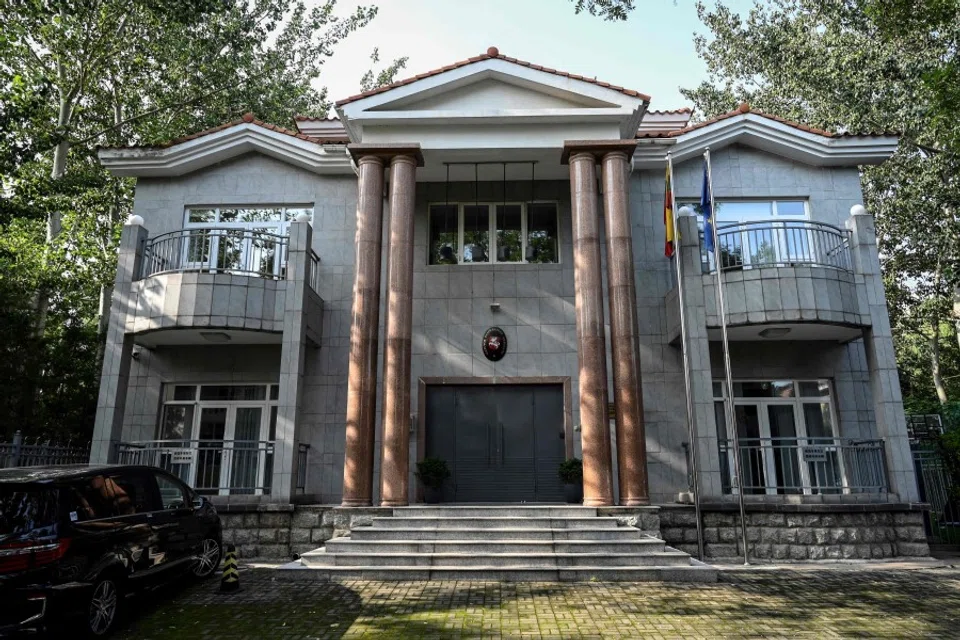Japanese academic: The politics behind the name 'Taiwanese Representative Office in Lithuania'
While Beijing has objected strongly to the Lithuanian government's move of allowing Taiwan to open a representative office under the name "Taiwan" rather than "Taipei", Taiwan has lashed out at "autocratic" Beijing, saying that its ties with Lithuania are based on the shared values of freedom, democracy, respect for human rights and the rule of law. Japanese academic Shin Kawashima examines the names of Taiwan's overseas offices and of various countries' offices in Taiwan, analysing the subtleties behind the different naming conventions.

Relations between China and Lithuania are strained. It is a well-known fact that relations between China and the Baltic States, in particular Lithuania and Estonia, have become even more strained of late, and that the circumstances of these strained relations can be traced to the relationship those countries have with NATO and the US.
Recently, China objected strongly to the decision of the "Taiwanese" government representative office in Lithuania to use the name "Taiwan" rather than "Taipei". On 10 August, China decided to recall its ambassador to Lithuania, and demanded that Lithuania recall its ambassador to China.
The Chinese Foreign Ministry has taken issue with the fact that the Lithuanian government has allowed Taiwan to open a "representative office" under the name of "Taiwan", in disregard of its diplomatic relations with the People's Republic of China (PRC).
The ministry asserts that "this decision brazenly violates the spirit of the communique on the establishment of diplomatic relations between China and Lithuania and severely undermines China's sovereignty and territorial integrity". China has urged Lithuania to "rectify its wrong decision" as well as attempted to head off Taiwan by criticising "Taiwan independence" as a "dead end" and warning that "any attempt at separatist activities in the international arena is doomed to fail".
Except for countries with which Taiwan has diplomatic relations as the Republic of China, no representative office under the name of "Taiwan" exists. Instead, the name "Taipei" is used...

Admittedly, Taiwan's overseas representative offices have by and large used the name "Taipei" rather than "Taiwan". Except for countries with which Taiwan has diplomatic relations as the Republic of China, no representative office under the name of "Taiwan" exists. Instead, the name "Taipei" is used, as in the case of the representative office in Japan, which is called the Taipei Economic and Cultural Representative Office in Japan. Given this situation, if Taiwan opens a representative office in Lithuania under the name of "Taiwan", it would undoubtedly appear to be an exceptional case.
So what about the representative offices of other countries in Taiwan? For example, Japan's representative office in Taiwan is the Japan-Taiwan Exchange Association, Taipei Office. Originally called the "Interchange Association", it was renamed the "Japan-Taiwan Exchange Association" in January 2018. While China protested Japan's use of the name "Taiwan", it did not recall its ambassador from Japan.
The US's representative office in Taiwan is the American Institute in Taiwan, Taipei Office, also using the name "Taiwan". Other similar examples of the use of "Taiwan" may be cited, including the representative office of Papua New Guinea calling itself the Papua New Guinea Trade Office in Taiwan. On the other hand, the representative office of Oman is the Commercial Office of the Sultanate of Oman-Taiwan, while that of Nigeria is the Nigeria Trade Office in Taiwan, R.O.C. (Republic of China).
What can be observed from these examples is that in the case of the US and Papua New Guinea, "Taiwan" is being used as the name of the place where the representative offices are located, whereas in the case of Japan and Oman, "Taiwan" is being used on a par with "Japan" and "Oman", and these cannot really be said to refer to the location of the representative offices. Nigeria goes a step further by including reference to the "Republic of China" in the name "in Taiwan, R.O.C."
Therefore, the use of the name "Taiwan" in the names of foreign representative offices located in Taiwan can in some cases be understood as the name of the geographical location, while in other cases "Taiwan" is clearly juxtaposed with the name of another country, or even used in combination with R.O.C.
European countries have never used the name "Taiwan," be it for their own Taiwanese representative offices or for their representative offices located in Taiwan.

So what is the issue with Lithuania? From the perspective of existing naming formats, it would be unusual for Taiwan's representative office located in Lithuania to use the name "Taiwan", while to do so would not necessarily be unusual for a Lithuanian representative office located in Taiwan. However, European countries have never used the name "Taiwan", be it for Taiwan's representative offices in Europe or for their representative offices located in Taiwan. As such, it means that Lithuania is the first country in Europe to use the name "Taiwan".
The matter of naming format is not China's only concern, however. China has criticised the emergence of a representative office under the name "Taiwan", linking it to Taiwan independence. Its criticism of Lithuania is also likely to stem from displeasure at Lithuania's recent tough stance on China, in particular regarding the issue of human rights. China's stance may also signify an attempt to curb what it views as the recent tendency of pro-democracy parties and political forces in European countries to support Taiwan as well as criticise China.
While China may have its own understanding and mindset, it will be difficult for other countries to appreciate the real problem unless the issue of naming format mentioned above is reconciled with these substantive issues.



![[Photos] Fact versus fiction: The portrayal of WWII anti-Japanese martyrs in Taiwan](https://cassette.sphdigital.com.sg/image/thinkchina/3494f8bd481870f7c65b881fd21a3fd733f573f23232376e39c532a2c7593cbc)

